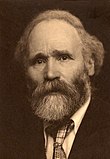
Summary
The 1900 United Kingdom general election was held between 26 September and 24 October 1900, following the dissolution of Parliament on 25 September. Also referred to as the Khaki Election (the first of several elections to bear this sobriquet), it was held at a time when it was widely believed that the Second Boer War had effectively been won (though in fact it was to continue for another two years).
| |||||||||||||||||||||||||||||||||||||||||||||||||||||||||||||||||||||||
All 670 seats in the House of Commons 336 seats needed for a majority | |||||||||||||||||||||||||||||||||||||||||||||||||||||||||||||||||||||||
|---|---|---|---|---|---|---|---|---|---|---|---|---|---|---|---|---|---|---|---|---|---|---|---|---|---|---|---|---|---|---|---|---|---|---|---|---|---|---|---|---|---|---|---|---|---|---|---|---|---|---|---|---|---|---|---|---|---|---|---|---|---|---|---|---|---|---|---|---|---|---|---|
| Turnout | 75.1% | ||||||||||||||||||||||||||||||||||||||||||||||||||||||||||||||||||||||
| |||||||||||||||||||||||||||||||||||||||||||||||||||||||||||||||||||||||
 Colours denote the winning party | |||||||||||||||||||||||||||||||||||||||||||||||||||||||||||||||||||||||
| |||||||||||||||||||||||||||||||||||||||||||||||||||||||||||||||||||||||
The Conservative Party, led by Lord Salisbury with their Liberal Unionist allies, secured a large majority of 134 seats, despite securing only 5.6% more votes than Henry Campbell-Bannerman's Liberals. This was largely owing to the Conservatives winning 163 seats that were uncontested by others. The Labour Representation Committee, later to become the Labour Party, participated in a general election for the first time. However, it had only been in existence for a few months; as a result, Keir Hardie and Richard Bell were the only LRC Members of Parliament elected in 1900.
This was the first occasion when Winston Churchill was elected to the House of Commons. He had stood in the same seat, Oldham, at a by-election held the previous year, but had lost. It was also the final general election of the Victorian era.
Results edit
| Candidates | Votes | ||||||||||
|---|---|---|---|---|---|---|---|---|---|---|---|
| Party | Leader | Stood | Elected | Gained | Unseated | Net | % of total | % | No. | Net % | |
| Conservative and Liberal Unionist | Marquess of Salisbury | 569 | 402 | 32 | 41 | −9 | 60.1 | 50.2 | 1,637,683 | +1.0 | |
| Liberal | Sir Henry Campbell-Bannerman | 402 | 183 | 38 | 32 | +6 | 27.4 | 45.1 | 1,469,500 | −0.5 | |
| Irish Parliamentary | John Redmond | 83 | 76 | 2 | 8 | −6 | 11.3 | 1.8 | 57,576 | −0.8 | |
| Labour Repr. Cmte. | Keir Hardie | 15 | 2 | 2 | 0 | +2 | 0.3 | 1.3 | 41,900 | N/A | |
| Independent Nationalist | N/A | 18 | 6 | 6 | 0 | +6 | 0.9 | 0.7 | 23,706 | ||
| Ind. Conservative | N/A | 7 | 0 | 0 | 0 | 0 | 0 | 0.4 | 13,713 | ||
| Independent Liberal | N/A | 3 | 1 | 1 | 0 | +1 | 0.1 | 0.2 | 6,423 | +0.1 | |
| Independent | N/A | 3 | 0 | 0 | 0 | 0 | 0 | 0.2 | 4,800 | +0.2 | |
| Scottish Workers | Robert Allan | 1 | 0 | 0 | 0 | 0 | 0 | 0.1 | 3,107 | N/A | |
| Ind. Liberal Unionist | N/A | 1 | 0 | 0 | 0 | 0 | 0 | 0.1 | 1,855 | N/A | |
| Independent Labour | N/A | 1 | 0 | 0 | 0 | 0 | 0 | 0.0 | 433 | +0.0 | |
Voting summary edit
Seats summary edit
See also edit
Notes edit
- ^ Contested the 1895 election as two separate parties, the Irish National League and the Irish National Party, but reunified before 1900.
- ^ All parties with more than 1,000 votes shown.
- ^ "General Election Results 1885-1979". Archived from the original on 30 January 2012. Retrieved 25 June 2022.
References edit
- Craig, F. W. S. (1989), British Electoral Facts: 1832–1987, Dartmouth: Gower, ISBN 0900178302
- Garvin, J. L. (1934), The life of Joseph Chamberlain: Volume Three 1895–1900, London, pp. 571–92 on dissolving Parliament, pp. 593–607 on Khaki election
{{citation}}: CS1 maint: location missing publisher (link)[publisher missing] - Hinton, Guy (2015), "Newcastle and the Boer War: Regional Reactions to an Imperial War", Northern History, 52 (2): 272–294, doi:10.1179/0078172X15Z.00000000092, S2CID 163032144
- Marsh, Peter T. (1994), Joseph Chamberlain: Entrepreneur in Politics, pp. 492–502[publisher missing]
- Readman, Paul (2001), "The Conservative party, patriotism, and British politics: the case of the general election of 1900", Journal of British Studies, 40 (1): 107–145, doi:10.1086/386236, JSTOR 3070771, S2CID 145429939
- Roberts, Andrew (1999), Salisbury: Victorian Titan, pp. 766–83[publisher missing]
External links edit
- Spartacus: Political Parties and Election Results
- United Kingdom election results—summary results 1885–1979 Archived 30 January 2012 at the Wayback Machine
Manifestos edit
- 1900 Conservative manifesto
- 1900 Labour manifesto
- 1900 Liberal manifesto






